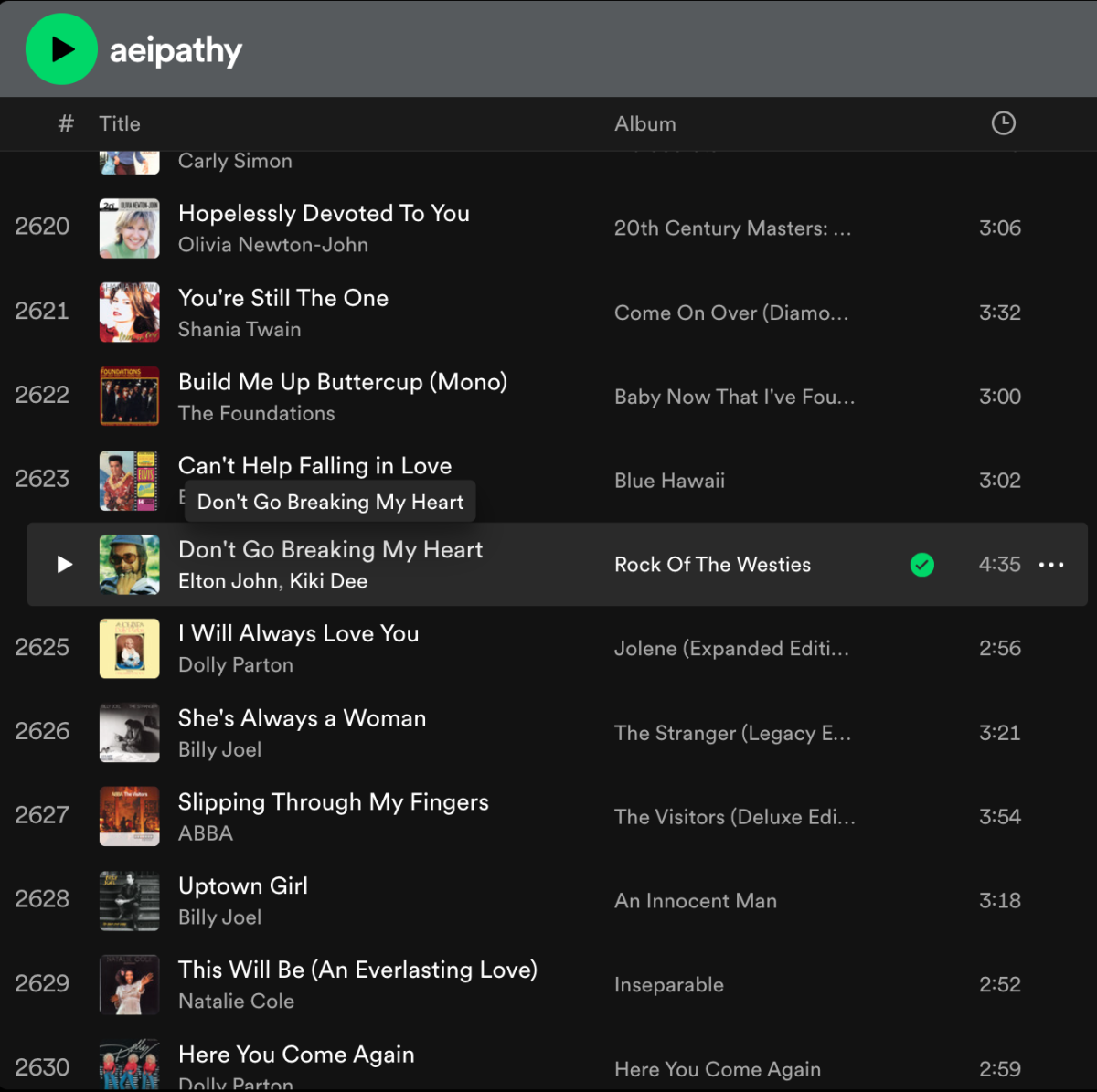Back to Back: Freedom Versus Responsibility
Do you feel like your level of freedom matches your level of responsibility?
Too Much Responsibility and Too Little Freedom
By Jon Pearcy
Responsibilities. We all have them. Yet I think many high school students will agree that as responsibilities grow throughout high school, freedom does not. For many of us, the only real large-scale jump in freedom comes when we get our license and can finally drive ourselves places. However, even then, our parents make most of the big decisions: when we can drive places, where we can drive, how late we can be out.
This doesn’t make sense; high school students have many responsibilities, and our level of freedom should reflect this. Most of us wake up as early (if not earlier) than our parents, come to school and work then go home and do more work, and large amounts of high school students participate in time consuming extracurriculars.
Essentially, many of us have as many time commitments and responsibilities as our parents, but aren’t treated like adults in exchange. I think that’s wrong. When you start doing as much work as an adult and acting like an adult, you should at least be treated like an adult. Now I know that there are plenty of high school students who break this mold; they’re exactly the reason that all adults think high school students are irresponsible, but I think that we should respond to the majority, not the exception.
It’s important for parents to protect their kids from making stupid choices, but they also have to allow them to make mistakes
The fact that so many parents expect their students to take on a huge workload without giving them any sort of ability to chose things for themselves is scary. It’s another example of the growth of hover-parenting in our generation. When students leave high school and go to college they will be responsible for everything but also be able to do whatever they want to. It’s important for parents to protect their kids from making stupid choices, but they also have to allow them to make mistakes; choosing everything for them isn’t the solution. Students need to be prepared for college and be ready to make responsible decisions.
Hover-parenting in general is bad. So many hover parents shovel huge amounts of work and responsibility on their children, and never let them do anything of their own accord. They slowly bury them and kill their social lives, and eventually the kid doesn’t know how to function without their parent making their choices. Kids need to learn the correlation between responsibility and freedom, the more responsible you are the more freedom you get. Eat your dinner? Then you can choose to eat ice cream. Get good grades? Then you can chose when to come home.
All in all I think it comes down to trust between students and parents. If you can trust me to go to school, do my work, and manage my time in terms of school, then you should trust me to make my choices outside of school. Even if they’re not always the right ones, they’re my choices to make, and there’s something to be said for learning from mistakes.
Just Enough Responsibility and Just Enough Freedom
By Riana Watkins-Martin
“You need to be home by curfew, which is in exactly five minutes. Call me when you leave Jane’s so I can know what time to expect you. Oh, and when you get here, don’t forget to pick what college you’re going to.”
Your phone instantly lights up, displaying this text you have just received from your mother, and you can not help but feel as if the over-the-top message is a contradiction in itself. You are expected to make significant life decisions yet are simultaneously treated like a baby. News flash: you still are one.
In today’s society, high school students resemble irrational toddlers, stomping their feet and incessantly whining when they are told to start pondering their career choice yet rejected by their parents when they ask to borrow the car for a night. Just because adults assume their children know what subjects they are interested in, just because they expect their children to know whether they are better at painting in pastels than they are at solving quadratic equations, does not mean they are automatically entitled to be handed the keys to a dangerous 4,000 pound machine. It does not mean they are a good driver. And pouting about it while throwing a temper tantrum surely is not proving that they are mature enough to be given more freedom. Scientifically speaking, the brain does not reach full maturity until age 25- so at the impressionable age of 16, our brains are very much similar to sponges. We are constantly soaking up information, learning new things about life itself, and being molded as if we are silly putty by others surrounding us. More often than not, the individuals that assert the most influence over us are our parents. It would be rather illogical for them to blindly throw us out of the nest, head first, wings flailing, when we still have so much more to soak in from them. Parents need to treat us like children because we still are children. We can not be too hard on them; they are simply trying to find the appropriate balance between allowing us leniency but, at the same time, drawing the line and setting necessary boundaries.
We are constantly soaking up information, learning new things about life itself, and being molded as if we are silly putty by others surrounding us. More often than not, the individuals that assert the most influence over us are our parents. It would be rather illogical for them to blindly throw us out of the nest, head first, wings flailing, when we still have so much more to soak in from them.
So your parents presume that you are going to take the dog out for walk after dinner and finish all of your Algebra 2 homework ,but they refuse to let you hang out with your friends on a school night? It’s unfair… it’s hypocritical… it’s unreasonable. No. It is simply something that makes sense. Freedom is something that must be earned instead of automatically given. How do teenagers earn this so-called “freedom”? Teenagers are constantly presented with ample opportunities to earn it; at the end of the day, they earn it by proving to their parents that they can handle responsibility in the first place. Maybe a majority of parents will loosen their leash after their child takes Spot out for an afternoon walk and solves the last algebraic expressions on their worksheet without constantly complaining. Have you ever thought about that before?
Often times, children do not think about things. They seem to forget that their parents are- heaven forbid- supposed to be parents. Believe it or not, parents are not supposed to be your best friend whom you gossip with and exchange matching bracelets with; they are not supposed to necessarily be“ fair”. Parents’ primary objective is simply to keep you safe. They are not supposed to aid in boosting your self esteem by “pretending” that you are mature adult.
Will you stop grumbling various complaints under your breath if your parents suddenly begin selecting your college for you, determining what you are going to major in, and hand picking what friends you’re allowed to associate with ? Then the argument that your parents give you too many responsibilities and not enough freedom is illegitimate considering in the newly presented scenario, they would be giving you no obligations as well as no freedom. In a way, providing you with various responsibilities is providing you with freedom. Factually speaking, you are not entitled to make any life decisions by yourself until you are 18 so being granted the ability to do so should actually be viewed as a privilege in and of itself. Parents are not maliciously denying your requests to stay out late on a school night or to borrow the car for a night; they are simply treating you how you deserve to be treated. At this particular age, teenagers are at the peak of perceived entitlement, emitting sensations of both egotistical and vain qualities with each captured selfie. If it were up to the teenager, they would be allowed to consume candy for breakfast and stay out past curfew with no repercussions. It is rather illogical to expect that they make appropriate decisions regarding their social lives because they are obviously going to demonstrate a significant amount of bias. However, this does not suggest that parents should dictate all aspects of their child’s life. Children should be allowed to make some choices for themselves considering they are fully capable of doing so. Therefore, children are currently being given just enough freedom and just enough responsibility. So the next time you review a contradictory text from your mom while you are staying at a friend’s house, attempt to avoid viewing her as someone boasting pointy horns and a devilish laugh. Rather, try to simply view her as someone who cares. Someone who cares about you. Someone wants to see you succeed in life. And most importantly, someone who loves you.
Jon has returned to The Central Trend after taking Writing for Publication his Sophomore year. Jon is a member of the school’s Model United Nations class,...
Riana discovered her passion for writing in fifth grade, when a piece of her writing was entered into a competition and transformed into a play. Entering...























































































